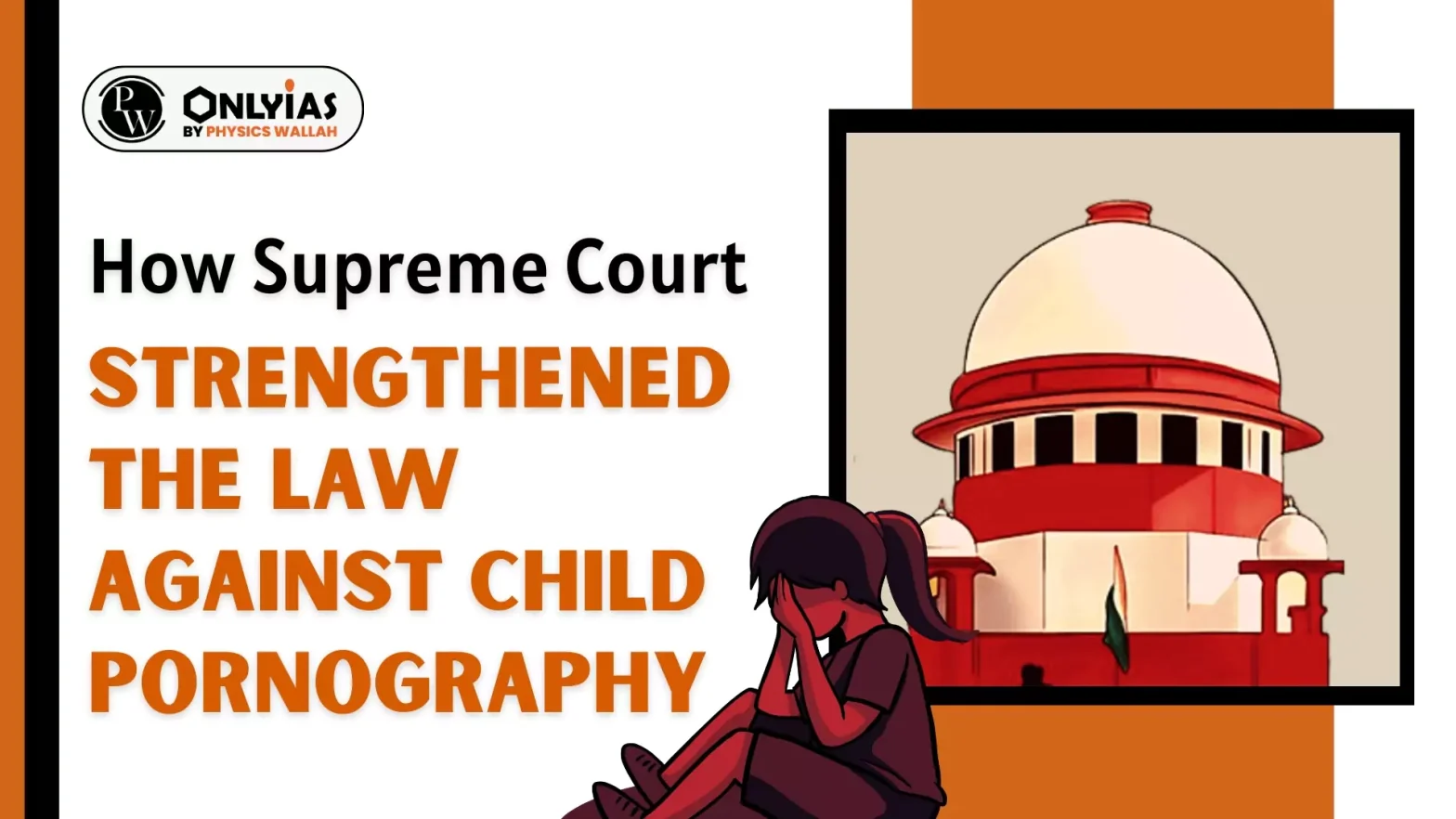On September 23, the Supreme Court strengthened laws against child pornography, ruling that viewing, possessing, or not reporting such content is punishable under the POCSO Act, regardless of sharing. This decision overturned a Madras High Court ruling that had dismissed charges against a 28-year-old man for downloading two child pornographic videos. In a 200-page judgement, the Bench, led by Chief Justice D Y Chandrachud and Justice J B Pardiwala, defined the offence of “storage of child pornography” more strictly.
Section 15 of the POCSO Act
Section 15 of the POCSO Act deals with the punishment for storing child pornographic material. Originally, this section only covered cases where child pornography was stored for commercial purposes. However, in 2019, the law was amended to introduce three distinct offences under Sections 15(1), (2), and (3). These cover different situations where possessing child pornography is punishable, depending on the intent and the way the material is handled:
- Storage with the Intent to Share or Transmit: If someone stores child pornography but fails to delete, destroy, or report it with the intention to share or transmit it, they can be penalised.
- Storage for Display or Distribution: Possession of child pornography for the purpose of distributing or displaying it, even if it is not shared, is a punishable offence unless it is being used as evidence in court or reported to authorities.
- Storage for Commercial Use: Possessing child pornographic content for commercial gain is also a serious offence.
These offences are punishable with penalties ranging from fines to three to five years in prison.
Enroll now for UPSC Online Course
Supreme court Verdict
- CSEAM: The Supreme Court has suggested to the Parliament to amend the Protection of Children from Sexual Offences Act (POCSO Act) to replace the term ‘Child Pornography’ with ‘Child Sexual Exploitative and Abuse Material’ (CSEAM). The Court also asked the Union Government to issue an ordinance in the meantime to effect such an amendment.
- Inchoate offences: In its ruling, the Supreme Court clarified that Section 15 also covers what are known as inchoate offences. These are offences where the actions taken (such as viewing or storing the material) are seen as preparatory steps toward a further crime, like sharing or distributing the content.
- Constructive possession: The court also introduced the concept of constructive possession. This means that a person can be held liable even if they don’t physically possess the material. For example, simply viewing child pornography online, without downloading it, can be considered as possession because the individual exercises control over the content while watching.
- Examples of Constructive Possession:
- If a person regularly watches child pornography but does not download it, they still exercise enough control (e.g., pausing, enlarging the video, etc.) to be considered in possession of the material.
- If someone clicks on a link that opens a child pornographic video but fails to report the incident to authorities, they can also be held responsible, even if they immediately close the link.
- Investigative Process: To establish a person’s intent (or mens rea), law enforcement agencies will examine:
- How the content was stored or controlled.
- Whether the person took steps to delete, destroy, or report it. The court has directed police to thoroughly investigate all subsections of Section 15 before concluding whether an offence has been committed.
Check Out UPSC CSE Books From PW Store
Conclusion
The Supreme Court’s ruling reinforces the seriousness of child pornography offences by broadening the scope of accountability and emphasising the necessity of reporting such content. This interpretation aims to deter individuals from engaging in or tolerating the possession of child pornography and to protect the rights of children. By establishing stricter guidelines, the court highlights the moral responsibility of society to safeguard vulnerable individuals.
![]() 25 Sep 2024
25 Sep 2024

